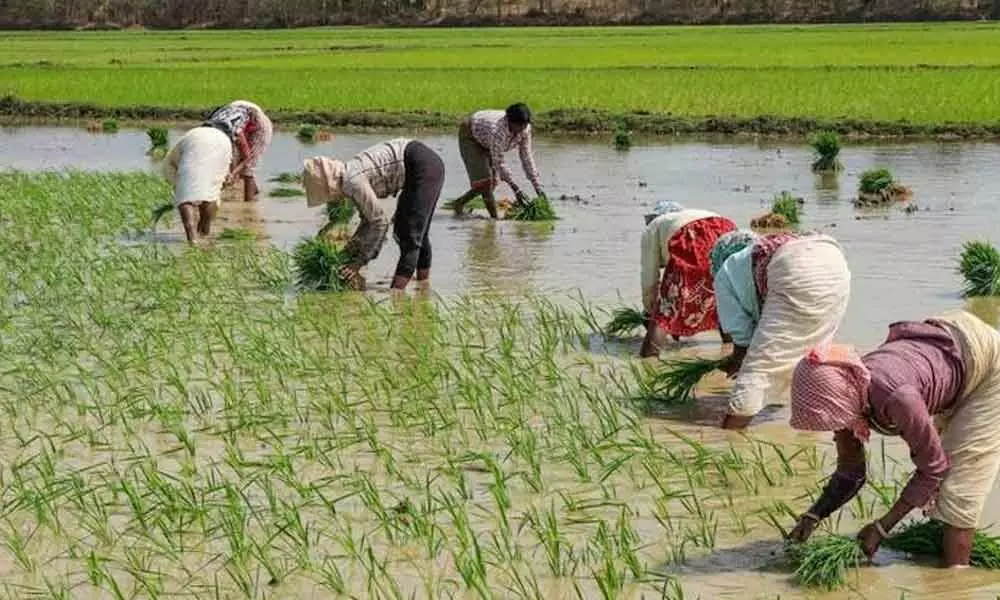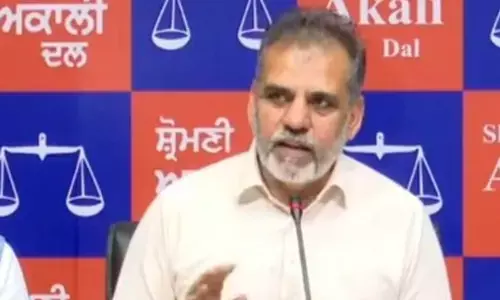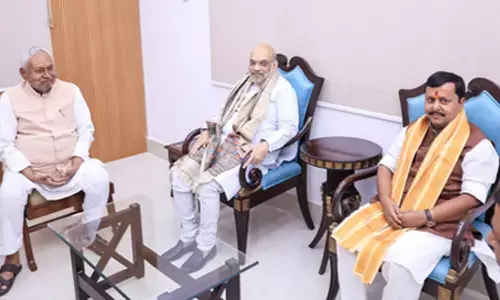Farmers have done their job

Farmers have done their job
It’s time for us to pick up the baton and complete the race
Flowers have already been ordered. Ladoos and sweets are being prepared. Celebrations are being planned all the way to welcome back the brave farmers who camped at the borders of New Delhi for over a year, finally returning home victorious.
Farmers are the new heroes. They came; they sat peacefully to protest, and finally forced the powers that be to listen to them. They have left an indelible mark in contemporary history.
Braving all odds, and determined to stay put till their demands are met, protesting farmers have demonstrated the strength of purpose. The courage, the perseverance and the tenacity exhibited by tens of thousands of protesting farmers has ushered in a ray of hope. Standing up against the collective power of the market forces, and that includes mainline economists and credit rating agencies; farmers have shown that all is not lost. Given the grit and resolve, ordinary people not only have the power to democratically reclaim their policy space but also sow the seeds for a new beginning.
With the sudden rollback of the three contentious farm laws, and the acceptance in principle of the need to have a guaranteed Minimum Support Price (MSP) for farmers, the Indian farm movement has in reality challenged the free market doctrine. This wasn't easy because over the past few decades, with the corporate media blacking out the voices of economic sanity, an overwhelming impression in favour of macroeconomics was created by pushing in the TINA factor – there is no alternative. The bureaucracy too has been more of a pen pusher, living comfortably in their ivory towers. Political leaders, barring a few notable exceptions and cutting across party lines, preferred to follow the FOMO logic – fear of missing out or in other words fear of being left out.
Take a selection of the newspaper editorials after the farm laws were repealed. An overwhelming number of editorials were left with little option but to welcome the decision to withdraw the laws in view of the ongoing protests but invariably backed the need to bring these market reforms in agriculture back at some stage. The same media had earlier expressed regret when the land acquisition laws were withdrawn and but urged the need to leave it to the sanguinity of the states to implement it if they felt it was required. Even at a time when the Nobel Prize in Economics this year has challenged the basic premise on which labour reforms are being pushed, that higher wages lead to low employment, Indian media houses are turning a blind eye to the underlying message of higher wages leading to higher employment, that the prize tries to convey.
Not only the media, scientists and economists too floundered unable to stand up and question the credibility of sponsored research and education that backed market reforms in agriculture. Farm distress had been lingering on for several decades now, and all that scientists and economists focussed on was the need to raise crop productivity as the way to increase farm incomes. Not explaining that if this argument made any economic sense then why was agriculture in deep crisis in the rich developed countries where private investments had flowed in, and where productivity was amongst the highest in the world. Instead of understanding why protesting farmers anger had spilled on to the streets, economists, business analysts and TV anchors spared no effort in taunting them, aligning them with separatist forces and even branding them as anti-national.
There were honourable exceptions of course, but the historic farm movement has certainly exposed the fall guys, the losers. At the same time, the unprecedented support from the society at large, which woke up from their slumber to extend a helping hand in whatever possible manner they could, will remain the hallmark of what essentially turned out to be a people's movement. From cobblers to tailors, from dry-cleaners to doctors, from retired bureaucrats to industrialists, from students to teachers, from shop keepers to dhaba owners, support had poured in from all sections and from every corner. The outpouring of public support to back up the protesting farmers cause is a clear pointer to how disconnected are the urban elite, and that includes academicians and policy makers, from the ground realities, the kind of economic growth the majority population desires. There are lessons here, and I hope economists do not fail again to look at economics as if people matter. Perhaps it is advisable to go back to the drawing room, and dig out economist F E Schumacher's collections of essays in his path-breaking book Small is Beautiful.
The pro-active participation by farm women, standing shoulder to shoulder with their men-folk, was a unique feature of this farm movement. Whenever I travelled to the protest sites, I was left amazed and awe struck at the immense power that the women force brought in. In the days and months to follow, the emergence of women power as a strong pillar of the farm movement will be a topic of intense research and analysis.
Once the jubilations are over, and protesting farmers are back in their crop fields, it will be time to pick up from where the protesting farmers left. First and foremost, it is time to accept that we, as society, failed to acknowledge that a terrible agrarian distress prevailed in our own back yard. While we were more or less complacent given the easy availability of ample food choices on the supermarket shelves, we failed to recognise that the people, who gave us our food, were themselves living in hunger. With the farm movement bringing out the stark and harsh reality, it is time now to stand up and ask for rebuilding agriculture, where farmers are seen with dignity and pride, where farmers do not have to commit suicide or abandon agriculture and migrate, and this is only possible if farming becomes a viable enterprise.
Instead of accusing and abusing farmers for derailing market reforms, it is time to understand that markets have failed everywhere in the world to enhance farm income, to provide a living income to farmers. A guaranteed income in the form of an assured MSP is what farmers are asking for. This is the real reform that will not only revitalise agriculture but will bring in rural prosperity. Moving beyond market fundamentalism, let us not be again swayed by biased newspaper editorials and the diatribe that TV anchors have relished against farmers. Let us for a change try to understand the reasons behind the farmers' outburst, and in our own little way call for economic justice for farmers. Farmers have done their job. It is time for us to pick up the baton and complete the race. That's the surest way to achieve Sabka Saath Sabka Vikas.
(The author is a noted food policy analyst and an expert on issues related to the agriculture sector. He writes on food, agriculture and hunger)










